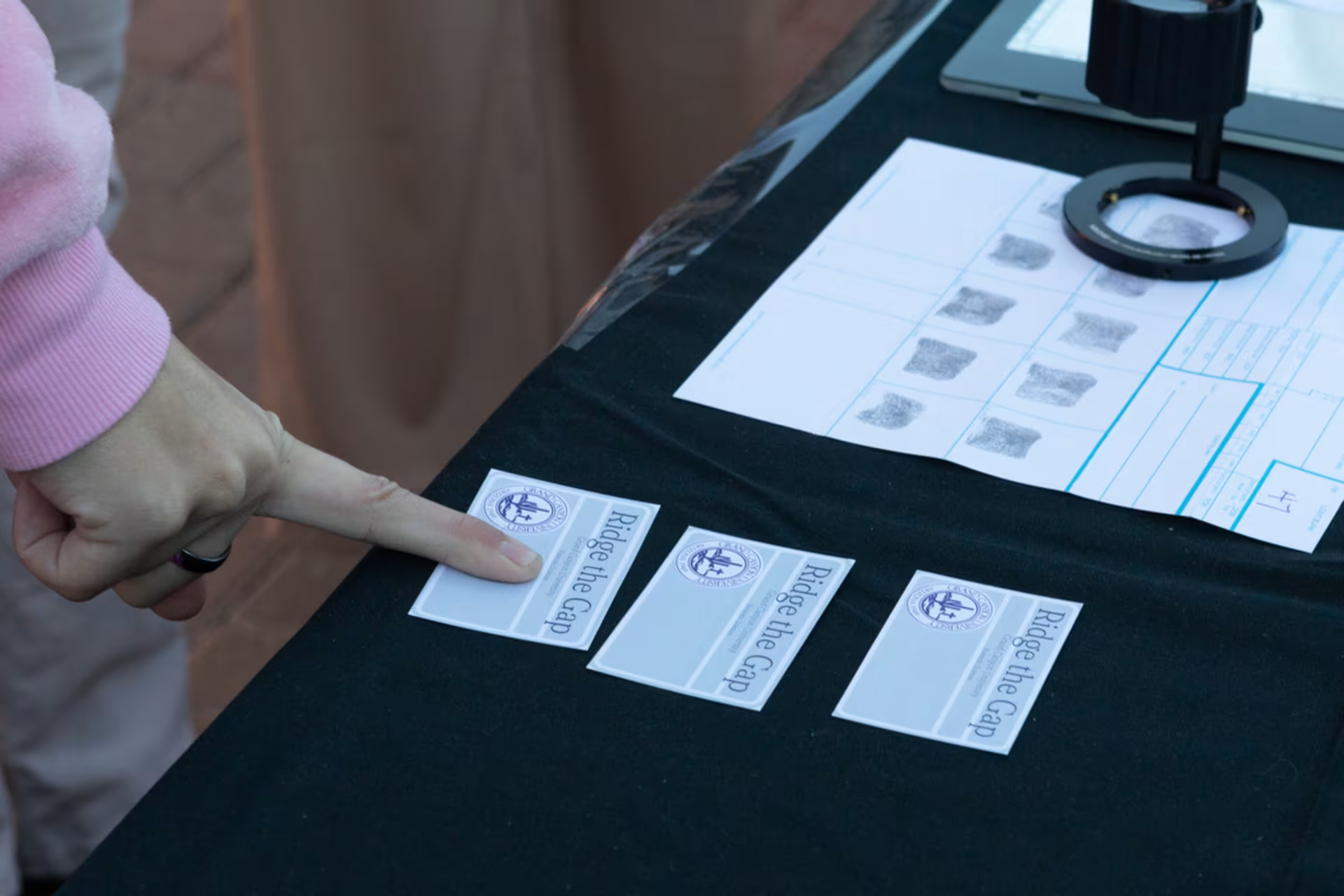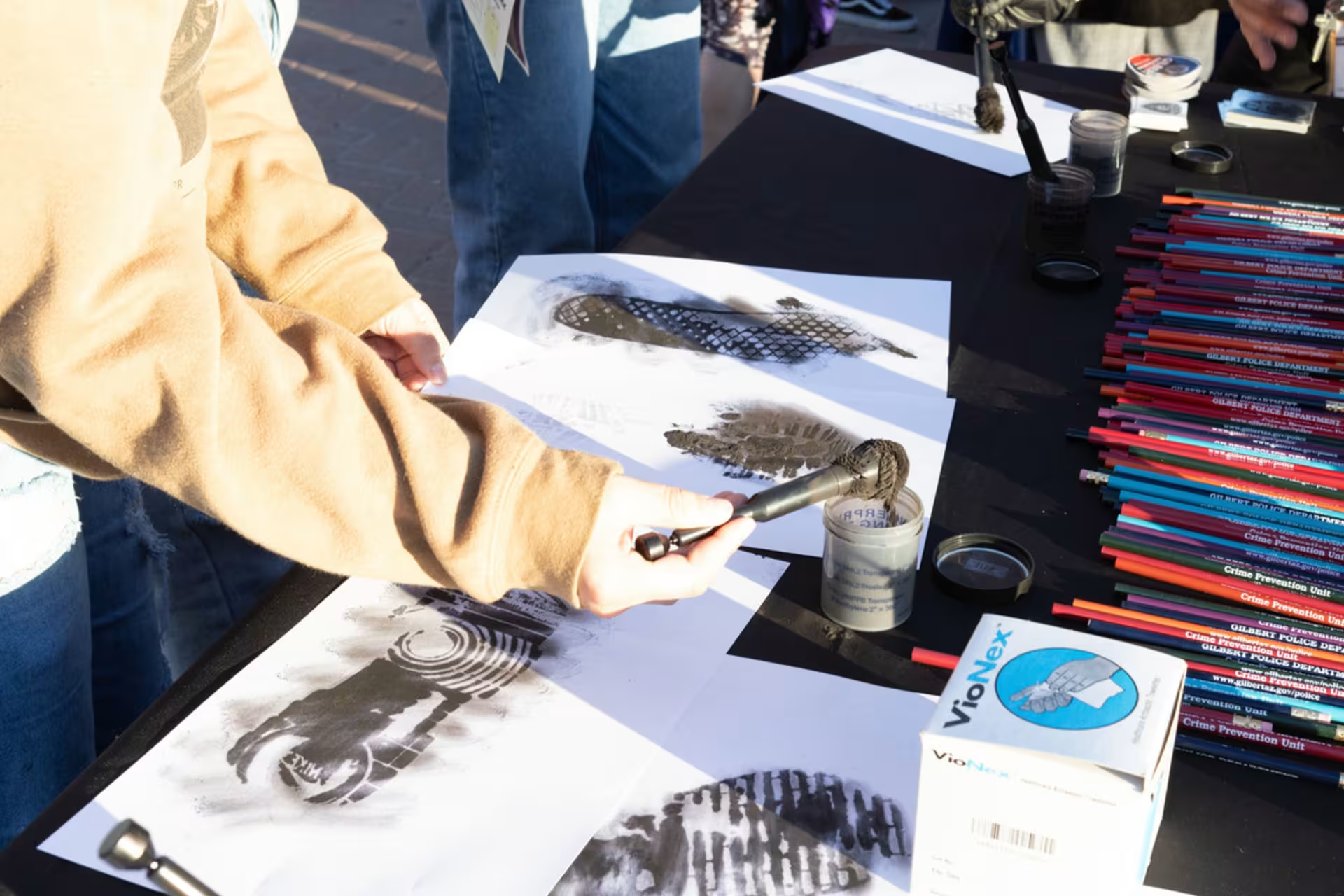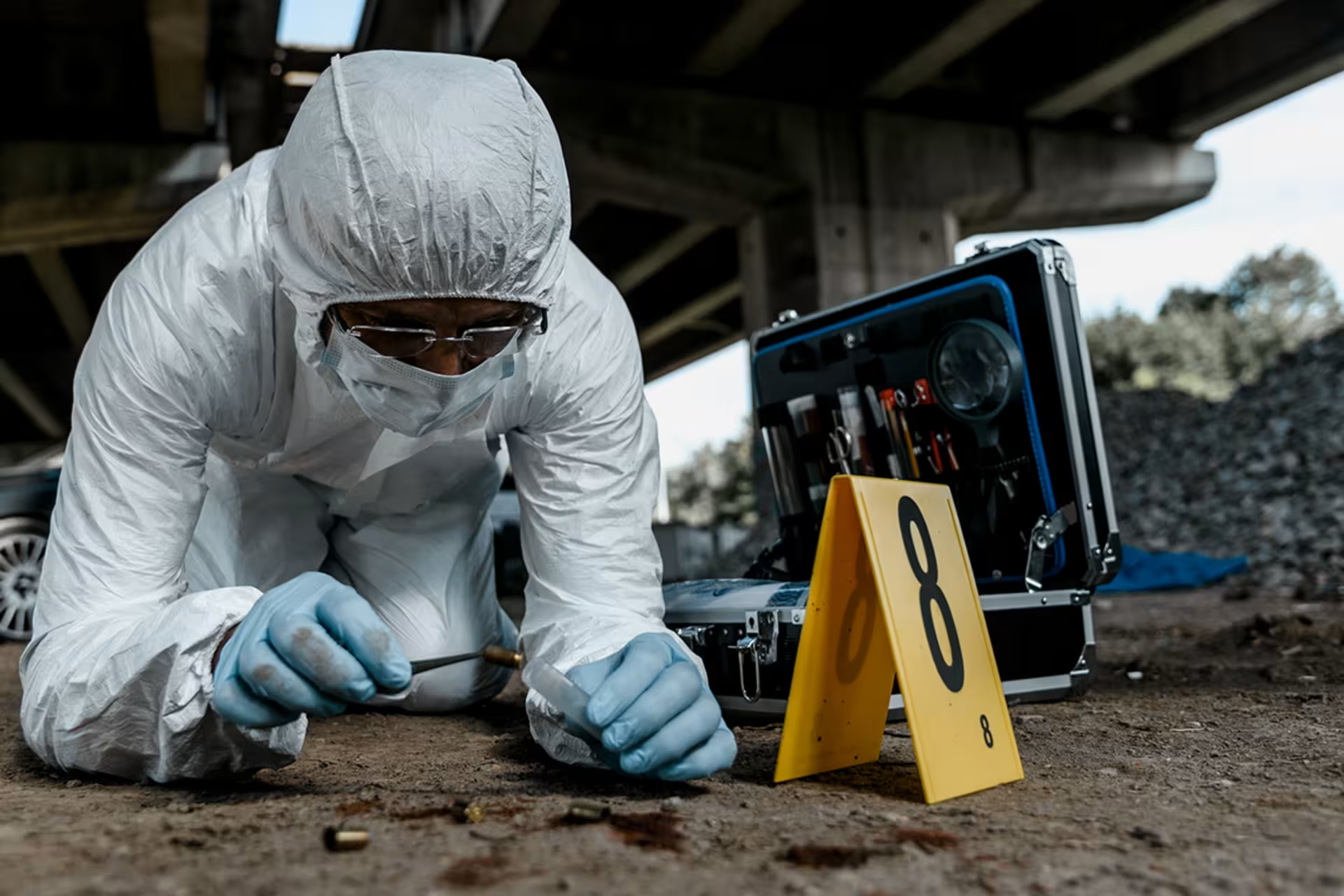


Embarking on a career as a forensic scientist requires a solid educational foundation rooted in specialized knowledge and skills. Grand Canyon University stands as a beacon for aspiring forensic scientists, providing a curated selection of degree programs tailored to this field.
If you are looking to pursue a career as a forensic science technician, you may want to pursue one of the following GCU degree programs:
A forensic scientist is a highly trained professional who utilizes scientific methods and techniques to process crime scenes and analyze evidence.(See disclaimer 1) They play a pivotal role in applying analytical reasoning and technical expertise to conduct scientific investigations, identify suspects and construct compelling cases both in the lab and at crime scenes.(See disclaimer 1) If you are intrigued by the intersection of science and criminal justice, you may want to consider pursuing a career as a forensic scientist.
Estimated number of new jobs set to open from 2022 to 2032(See disclaimer 2)
The ideal education path for aspiring forensic science technicians is to earn a bachelor’s degree in forensic science, biology, chemistry or a related field.(See disclaimer 4) These degrees can provide you with a strong foundation in scientific principles and analytical techniques that may be essential for forensic work.
Students pursuing hands-on experience through internships or research opportunities can help further enhance their skills and understanding in this field, while advanced degrees or specialized certifications may offer opportunities for career growth and specialization within forensic science.
Bachelor’s programs in forensic science cover a range of topics, such as:
Forensic science principles
Crime scene investigation
Forensic chemistry/biology
Evidence analysis
Ethics and accreditation standards
At crime scenes, they meticulously analyze, document and collect evidence such as weapons, fingerprints and bodily fluids. In the lab, forensic scientists specialize in various areas such as DNA analysis, toxicology, firearms, fingerprint analysis or controlled substances, among others.(See disclaimer 1)
A forensic scientist employs scientific methodologies to probe crimes and scrutinize evidence. They utilize analytical reasoning and technical proficiency to identify potential suspects, aid in the construction of compelling cases, and operate effectively in both laboratory settings and crime scenes.
Their tasks may vary depending on the organization they work for, but they commonly include the following:(See disclaimer 1)
Aid in criminal investigations
They gather evidence, analyze data and provide expertise in various forensic disciplines.
Document findings
Forensic scientists write reports detailing findings and methods, including photography, sketching, observation recording and evidence collection.
Catalog and preserve evidence
They carefully document, label and store all collected crime scene items for evidence integrity and traceability in investigations and legal proceedings.
Articulate findings
These professionals explain findings and methods to lawyers, detectives and other law enforcement personnel.
Testify in court
Forensic scientists testify as an expert witness about their findings and methods.
Reconstruct crime scenes
They analyze physical evidence, witness testimonies and forensic data to recreate the sequence of events leading up to and following a crime.
Stay informed with the latest insights and updates on forensic science.

The work of fingerprint analysts plays a crucial role in identifying suspects, solving crimes and convicting criminals.

Are you passionate about criminal justice and looking for a way to make a positive difference in your community? One meaningful career path to consider is that of the forensic photographer.

Although the true role of forensic science professionals looks different from what is portrayed on TV, forensic investigations is definitely an exciting and dynamic field.

Forensic scientists can be pivotal in upholding justice and their contributions have the potential to significantly impact communities.
When learning how to become a forensic scientist, it’s important to acquire essential skills, such as:(See disclaimer 4)
Analytical reasoning
Attention to detail
Problem-solving
Math knowledge
Scientific knowledge
Ethical integrity
Critical-thinking
Observational skills
Knowing how to become a forensic scientist is essential for those aiming to enter the field. By following this educational and experiential path, you can prepare yourself for a career as a forensic scientist, equipping you with the knowledge, skills and practical experience necessary to pursue this critical field.
Here’s a typical educational path and steps for starting this career:
High School Diploma
College Degree
Entry-Level Roles
Professional Certifications

Individuals aspiring to become forensic scientists may find the field enticing due to its potential for intellectual stimulation, diverse specializations and ongoing learning prospects. You may find these factors can make forensic science an appealing career choice for those seeking fulfilling work. Furthermore, state and local governments are projected to maintain their hiring of forensic science technicians to manage their substantial case volumes.(See disclaimer 2) The weight placed on evidence within legal proceedings are increasing the need for forensic science technicians to assist law enforcement agencies and courts.(See disclaimer 2)

Explore forensic science to contribute to crime resolution and public safety. Start your path to becoming a forensic scientist now.
Forensic scientists usually work behind the scenes, either in a laboratory or crime scene environment.(See disclaimer 1) They work closely with law enforcement agencies, legal teams, attorneys and other professionals to gather and interpret evidence that can be used in criminal investigations and court proceedings.
Work locations may include:
Crime testing laboratories
Forensic science technicians often work in crime labs and able to work day, evening or night shifts.(See disclaimer 5)
Crime scenes
Forensic science technicians may be required to travel throughout their jurisdiction (cities, counties or states) and work outside in all types of weather to help gather evidence from crime scenes.(See disclaimer 6)
National government
The U.S. Drug Enforcement Administration (DEA) hires forensic scientists to perform fingerprint analysis and forensic computer investigators to support DEA agents and other law enforcement personnel.(See disclaimer 5)
Local and state government/law enforcement
Local and state police departments, such as city and state police, employ forensic scientists to process evidence and assist in the investigation of crimes, including reconstructing the crime scene using various techniques such as diagrams and trajectory analysis.(See disclaimer 7)
Hospitals
Hospitals employ forensic nurses to provide trauma care and collect physical evidence from crime victims.(See disclaimer 7) This career route requires a nursing degree and specialized training.
Median annual wage for forensic science technicians as of May 2023(See disclaimer 8)
Estimated job growth for forensic science technicians from 2022 to 2032(See disclaimer 2)